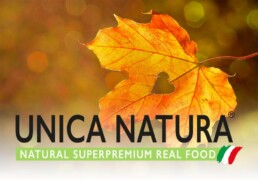Autumn and the immune system

Autumn is a season that brings nice warm colors during the fall, but also brings the lowering of temperatures and the immune system may be adversely affected. The phenomenon of seasonal reduction in immune competence is common both to us and to our four-legged friends and it is manifested through what are generally called “conditioning” disorders. This imbalance facilitates infectious agents, which are not normally able to cause pathological forms, to determine transient enteritis, conjunctivitis, rhinitis and other disorders involving the respiratory tract.
There are immunostimulating products to enhance immunity and induce a strengthening of the immune system for a variable duration and not specific for a particular antigen. Through the time many bacteria have been used as immunostimulants, promoting antibody production and increasing nonspecific resistance to bacterial infections. Other immunostimulants may result from natural mediators of the immune system, such as interferon. Finally, there are also complex carbohydrates such as zymosan, glucan, dextran sulfate and lentinans that can activate macrophages.
Natural compounds are available to increase the immune system of your pet:
-
- The Acemannon is a long-chain poly-mannose extract from Aloe vera (barbadensis), which stimulates macrophages, it induces the production of cytokines and also boosts cellular immunity. In addition to having an immunostimulanting action, it contains a high percentage of vitamins, amino acids and minerals acting as tonics. The aloe juice has positive effects in animals. However, it is preferable to ask for advice from your veterinarian before administering it.
- The Arabinogalactans contained in the wood of the larch trees are substances with therapeutic potential related to the positive effects on the immune system. Indeed, since they are immunostimulants, they decrease the susceptibility to external aggressions by opportunistic pathogens. Studies in dogs confirmed these properties, showing that the Arabinogalactans increase blood concentrations of immune cells.
- The Carotenoids (lutein, β-carotene, astaxanthin) are a group of substances with potent antioxidant capabilities, which directly or indirectly increase the immune response to both humoral and cell-mediated immunity. Indeed, we observe an improvement in the response to vaccines, an increased lympho-proliferative capacity, a rise in blood levels of antibodies and an increase in the cytotoxic activity of immune cells. Adequate doses of these substances thus provide an adequate immune protection in debilitating conditions, such as stress or during aging.
- Ginseng (Panax ginseng) is a remedy that comes from Eastern medicine. Among the beneficial effects, there is also the strengthening of the immune function, mainly due to the increase of the activity of phagocytic immune cells.
- Vitamins E and C are powerful antioxidants, known and studied for a long time. The strengthening effects of the immune system are well known and confirmed by numerous clinical trials that have tested their undoubted efficacy. Their action is synergistic, since they complement each other by enhancing their positive effects. Indeed, vitamin E, due to its lipophilic affinity, externally protects cells localizing in cell membranes, while vitamin C is located internally in the cellular environment and regenerates vitamin E when this runs out. The immune system cells are more exposed to oxidative stress of the oxygen free radicals and the combined action of the two vitamins strengthens the immune system, significantly reducing the damages on it, which could adversely affect its effectiveness.
Share
Related posts
The ultimate frontier of cat allergy
There are many people who suffer from allergies caused by the…
Holiday with 4-leggend friends
What measures should you take to plan a top holiday with your…

